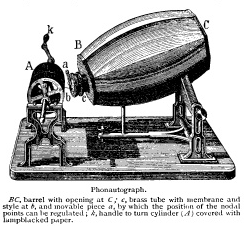Mitt Romney, Who Told 533 Documented Lies in 30 Weeks Says Obama Will Lie In Debates
In an interview with George Stephanopoulos, Mitt Romney discussed his reaction to the Libyan attacks, his poll numbers, and how he is preparing for debates. He says he is preparing to face a liar:
“I think the challenge that I’ll have in the debate is that the president tends to, how shall I say it, to say things that aren’t true,” Romney said. “I’ve looked at prior debates. And in that kind of case, it’s difficult to say, ‘Well, am I going to spend my time correcting things that aren’t quite accurate? Or am I going to spend my time talking about the things I want to talk about?”
Yet Mitt Romney has proven to be one of the prolific morally bankrupt liars to ever run for office, Over the past 30 weeks, Mitt Romney has told lie after lie after lie:
I, II, III,
IV,
V, VI, VII, VIII, IX, X, XI, XII, XIII, XIV, XV, XVI, XVII, XVIII, XIX, XX, XXI, XXII, XXIII, XXIV, XXV, XXVI, XXVII, XXVIII, XXIX, XXX. That's five hyperlinks to get anyone interested off to a good start.
The rest can be found here.
Limbaugh: Al-Qaida “gave up Osama”
He says the terrorist group wanted to "mak[e] Obama look good" so he would remain in the White House VIDEO. let's say this fantastical tale is true. Then who better to have in the White House than someone who makes terrorists give up just by being president.
The Muslim Protests: Two Myths Down, Three to Go
Right-Wing Media Dubiously Accuse Hillary Clinton Of Ignoring Warnings Of Embassy Violence
7 Mitt Romney Statements As Idiotic as His Libya Response
2. Romney Insults Gay Veteran On Marriage
Last winter, before the New Hampshire primary, Romney was followed [4] by cameras into a diner where he assumed that an elderly man wearing a Vietnam Veterans hat and red wool jacket was a fellow conservative—not a gay veteran who asked whether Romney was opposed to gay marriage (he is) and then lambasted the presidential candidate. "He's not getting my vote. He just told me I'm not entitled to constitutional rights," said Bob Garon. "I think and man and a woman, and a man and a man should be treated equal. What the hell's the difference?"
3. Romney Tells Medical Pot Patient He’d Arrest Him
Romney told the Republican Convention how compassionate he was—and would be as president. But that compassion does not extend to permanently disabled people who find medical marijana’s theraputic value as a sedative helps them with their chronic illness. Here Romney is asked by a young man in a wheelchair if a Romney administration would arrest someone like him, after explaining that pharmaceutical marijuana isn’t helpful—but the plant itself it. Romney said medical use would still be a crime.
4. Romney Likes To Fire People
This clip raised eyebrows when it was first aired in the primary season, but it has new resonance now as Romney is seeking to make the economy and job creation the number one issue in the election. Taken together with the preceeding clips, it shows a man who obviously is more in touch with accounting spreadsheets than with living, breathing employees.
5. He Knows What It’s Like To Be Unemployed
There’s more to this clip than the theatre of the absurd—argably the richest man ever to run for president telling Florida voters that he knows what it’s like to be unemployed, because as a candidate he is unemployed. What’s happening here—and this is also visible in other Romney pronouncements where he obviously is following a script from his campaign’s advisors—is he is not just patronizing people, but you really don’t know what’s going on inside his mind, if it’s not just saying anything to win votes.
6. ThinkProgress’s “Top Ten” Out of Touch Moments
This video [5] compilation quickly presents many of the most-heard sound bites: saying he knows what it is to get fired, that corporations are people, that making more that $300,000 a year as a speaker “is not very much,” that he drives a pickup while his wife has the Cadillacs, that he is not very concerned about the poor because there are government safety nets.
7. Romney Likes Neo-Con Ideas More Than People
The ThinkProgress video [5] is one of many that show the most pointed barbs, but it’s worth looking at the entire exchange behind some of these comments—such as the questions that lead to Romney’s infamous “corporations are people, my friend” quote, as they reveal far more about his thinking and values.
Here is the full exchange that prompted the "corporations are people" quote. It starts off as a question about cutting back on future Social Security and Medicare benefits, where Romney says those entitlements must be parred back because he will not raise taxes to pay for what’s needed to sustain the system’s current barely adequate retirement programs. Romney’s comments are right from the pages of liberatian think tanks—just like his comments attacking Obama after the death of Ameican diplomats in Libya. These radical rightwingers elevate their ideology over the impact of their ideas on people—whether it is in domestic or foreign policy.
8. Romney Versus Obama on Libya—You Decide
Now contrast the comments [3] by both Romney and Obama in response to the murders of the U.S. diplomats in Libya. Romney is reciting more neo-con talking points, akin to the arguments made by George W. Bush before he launched his war of choice in Iraq. In contrast, Obama says the U.S. honors the service of the deceased, will not give up on Libya’s new democracy, notes how some Libyans tried to defend the Americans and declares that the U.S. will bring those responsible to justice.
The
anti-American conservative movement keeps asking for Obama's birth certificate. America should demand to see the certification that Romney is sane enough to be walking around without being in a straightjacket with a drool cup.



















































